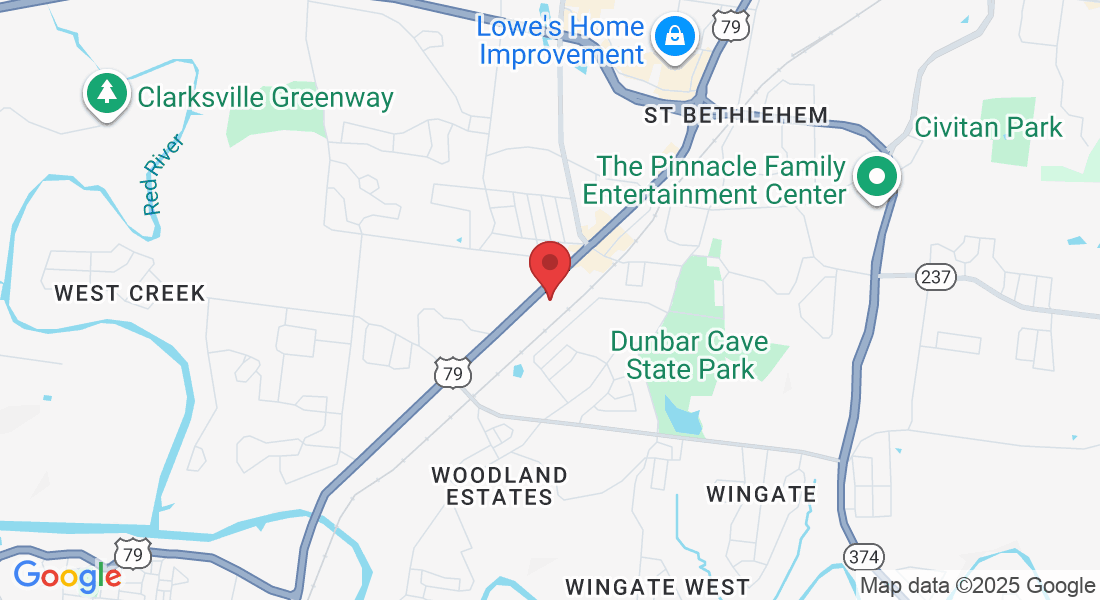VA Home Loan Expert Fort Campbell & Clarksville, TN
VA Loan Services for Military Families in Clarksville & Fort Campbell

Trust
At Loan Factory, we build trust through personalized guidance, local market expertise, and a commitment to exceeding your expectations. #TrustworthyMortgages"

Great Rates
Unlock your dream home with our mortgage solutions. Our local experts offer competitive rates tailored to your needs, helping you save more. #GreatRates #HomeFinancing

High Efficiency
Experience swift and efficient mortgage processing with our team of local experts. We prioritize quick turn times, ensuring you get the keys to your dream home sooner. #FastApproval #QuickTurnTimes
What Is a VA Home Loan?
A VA home loan is a mortgage benefit available to eligible veterans, active-duty service members, and surviving spouses, guaranteed by the U.S. Department of Veterans Affairs.
This powerful program allows qualified borrowers to purchase a home with no down payment, no private mortgage insurance (PMI), and typically more favorable interest rates than conventional loans. VA loans are designed to make homeownership more accessible and affordable for those who have served our country, offering flexible credit requirements and financing up to 100% of a home's value.
How Does a VA Loan Work?
A VA loan works by allowing eligible veterans, active-duty service members, and surviving spouses to purchase a home with no down payment, no PMI, and flexible credit requirements.
The Department of Veterans Affairs guarantees a portion of the loan, which reduces risk for the lender and helps borrowers secure lower interest rates. Once pre-approved, buyers choose a home, complete the VA appraisal, and close with a VA-approved lender.
Do I Qualify for a VA Home Loan?
You may qualify for a VA home loan if you are a veteran, active-duty service member, National Guard or Reserve member with sufficient service history, or an eligible surviving spouse.
Qualification is verified through the Certificate of Eligibility (COE), which confirms your service entitlement. Even if your credit is less-than-perfect, VA loans offer flexible guidelines designed to help military families achieve homeownership.
Work With a Local VA Home Loan Expert
Work with a local mortgage expert for a streamlined mortgage process. They have in-depth knowledge of the local real estate market, trends, and values. Receive personalized guidance tailored to your needs. Benefit from their extensive network of industry professionals, saving you time and effort. They are accessible and available for face-to-face meetings or virtual consultations. They understand local regulations and ensure compliance. Choose Loan Factory for a successful and stress-free home financing journey. Get started today!
We understand that your time is valuable, and we're here to make the process as seamless as possible. Take control of your schedule and secure your preferred date and time for your upcoming appointment.
Our user-friendly interface allows you to select the most convenient slot from our available options. Whether you're seeking a mortgage consultation, a job interview, or a business partner strategy call, we've got you covered. Simply follow the steps, and in just a few clicks, your appointment will be confirmed.
Once you've scheduled your appointment, keep an eye out for our confirmation and reminder messages. We'll make sure you're well-informed and prepared for your meeting. If you need to make any changes or have questions, our dedicated support team is ready to assist you.
At Loan Factory, we prioritize your satisfaction. Our skilled professionals are dedicated to delivering the highest standard of service to you. We look forward to meeting you and addressing your needs.
Frequently Asked Questions About VA Home Loans
What is a VA Loan, and Who Qualifies for It?
A VA loan is a mortgage loan available to veterans, active-duty service members, and eligible surviving spouses. Benefits include no down payment, competitive interest rates, and no private mortgage insurance (PMI).
How Can I Start the Mortgage Process in Clarksville, TN?
To start, obtain a Certificate of Eligibility (COE), then work with a VA-approved lender like Travis Egan to secure financing.
What Are the Benefits of Choosing Travis Egan for My Mortgage Needs?
Travis Egan is a Marine Corps veteran with 30 years of experience in VA home loans. He provides personalized guidance and expert mortgage solutions for veterans and military families.
How Does the VA Loan Process Work?
The VA loan process involves checking eligibility, getting pre-approved, finding a home, undergoing appraisal and underwriting, and closing on the home.
What Mortgage Options Are Available Besides VA Loans?
Refinancing can lower your interest rate, reduce monthly payments, and provide cash-out options for home improvements or debt consolidation.
How Will I Benefit from Refinancing My Mortgage?
Refinancing may lower your interest rate, reduce monthly payments, and provide cash-out options for home improvements or debt consolidation.
What Documents Do I Need to Apply for a Mortgage?
You'll need a Certificate of Eligibility (COE), proof of military service, recent pay stubs, tax returns, and a credit report for loan approval.
How Long Does the Mortgage Approval Process Take?
Most VA loans close within 30-45 days*, depending on documentation and lender processing times. Although, we have closed them as fast as 11 days.
* For information only. The above are estimates; not a guarantee. Turn times may vary as each loan is unique.
What Are the Requirements for First-Time Homebuyers?
First-time homebuyers need stable income, good credit, and must meet lender-specific requirements. VA loans offer extra benefits with no down payment.
How Do I Contact Travis Egan for a Mortgage Consultation?
You can reach Travis Egan at (931) 208-6280 or visit https://travisegan.com/contact-us to schedule a consultation.
Travis Egan, VA Mortgage Vet
NMLS # 655284
2031 Wilma Rudolph Blvd
Clarksville, TN 37040
(931) 208-6280
Loan Factory
NMLS # 320841
2195 Tully Road
San Jose, CA 75254
(660) 333-3333
Loan Factory is an Equal Housing Lender. We fully comply with the Equal Credit Opportunity Act (ECOA) and all other Federal regulations. All applicants applying for credit from Loan Factory will never be discouraged based on race, color, religion, national origin, sex, military status, marital status, age, or because you get public assistance. All information we request is voluntary and will be kept confidential. For more information on the ECOA, please visit: http://www.ftc.gov/bcp/conline/pubs/credit/ecoa.shtm

© Copyright 2026 | Loan Factory | All rights reserved.


